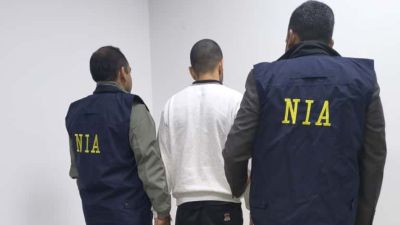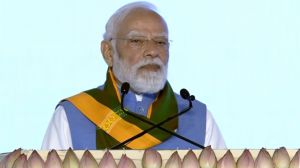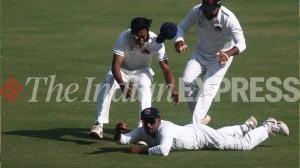UF dithers on defection law
NEW DELHI, NOV 8: With defection' politics apparently providing the only platform for stable governance, the dithering of parties on this ...

NEW DELHI, NOV 8: With defection’ politics apparently providing the only platform for stable governance, the dithering of parties on this crucial issue is not surprising.
Despite pressure from the Congress, the United Front Government’s efforts to amend the Anti-Defection Law in the coming winter session of Parliament are unlikely to succeed.
Two days before the consultations on the issue with political parties begin, the government seems unprepared for any serious exercise. Till this evening, the parties were yet to receive a communication inviting them to the meeting. The government had also not circulated any note on the proposals among the parties.
The exercise appears unlikely to throw up anything worthwhile as the parties will be unable to formulate their stand on the proposals at Monday’s meeting until they discuss them within their own fora.
The Bharatiya Janata Party said today that there had been no response so far to Leader of the Opposition Atal Behari Vajpayee’s letter to Prime Minister I K Gujral seeking a note outlining the government’s concrete proposals.
“We wanted the government to concretise its proposals so that they could be discussed within the party,” said party spokesman Yeshwant Sinha.
The CPI also said that there was no word from the government about the meeting. Party leader D Raja said his party had sought a note on the proposals but had not received any.
The government’s moves to amend the law in the background of defections from other parties to the BJP in Uttar Pradesh at best appear half-hearted. For one, the government itself is not clear on how it wants to go about plugging the loopholes in the law. The Law Ministry has mooted some proposals but initial reactions to them, even from within the ruling coalition, are far from positive.
Secondly, the BJP, without whose support the UF-Congress will not have the necessary numbers to see the Constitutional amendments through, has said that any attempt to change the law without considering the role of governors would not do.
Even within the Janata Dal and among the other UF constituents there is no consensus with leaders speaking in different voices on the nature of amendments to be brought. Some of them argue that the provision for genuine dissent in political parties cannot altogether be given up. “After all even the undivided Communist Party of India split on an ideological question in the 1960s,” said a senior Janata Dal leader.
The Law Ministry has reportedly suggested that every split be considered a case of defection. It also proposed that the powers to disqualify defectors be taken out of the Speaker’s hands and instead be transferred to the Election Commission.


- 018 hours ago
- 0217 hours ago
- 036 hours ago
- 048 hours ago
- 0517 hours ago





























